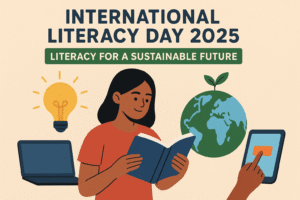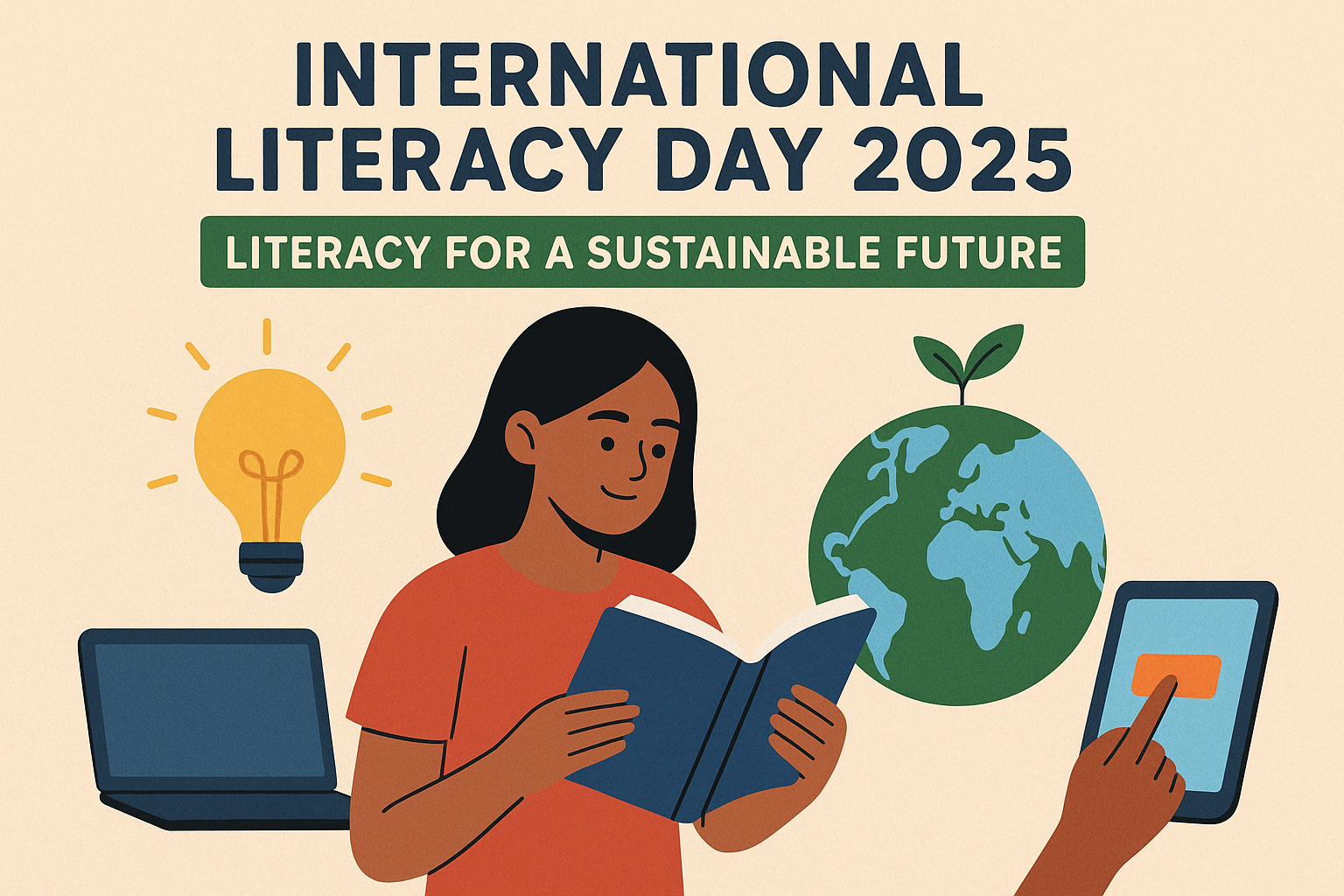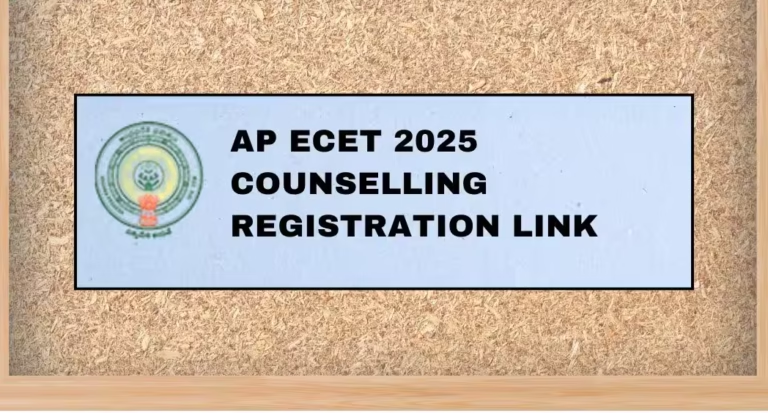International Literacy Day 2025: Theme, History, Importance & Celebration
International Literacy Day 2025: History, Theme, Importance, and Global Impact
Introduction
Every year, on 8th September, the world comes together to celebrate International Literacy Day (ILD). This day is more than just a reminder of the ability to read and write—it’s about empowering individuals, uplifting communities, and building stronger nations through education. Declared by UNESCO in 1966 and celebrated since 1967, International Literacy Day highlights the value of literacy as a basic human right and an essential foundation for lifelong learning.

In 2025, as we stand in an era of artificial intelligence, digital classrooms, and online learning platforms, literacy has gained a new dimension. It is no longer only about reading and writing—it now includes digital literacy, technological adaptability, and the ability to participate fully in today’s fast-evolving knowledge-driven society.
Why International Literacy Day Matters
Imagine a world where millions of people cannot read a medical prescription, fill out a job application, or even understand their basic rights. Sadly, this is the reality for 763 million adults worldwide, according to UNESCO, with women forming two-thirds of that population.
This is why International Literacy Day is so important—it sheds light on issues often ignored in the rush of development. Literacy is not just a skill; it’s a lifeline.
-
For Individuals – Literacy means dignity, independence, and the chance to dream bigger.
-
For Communities – Literate societies are healthier, more innovative, and more economically stable.
-
For Nations – No country can progress without educating its people. Literacy fuels economic growth, reduces poverty, and strengthens democracy.
International Literacy Day 2025 Theme
Each year, UNESCO announces a theme that reflects current challenges.
The theme for International Literacy Day 2025 is:
“Literacy for a Sustainable Future: Bridging Education and Technology.”
This year’s theme emphasizes how technology can help us close the literacy gap. From online classes and e-books to AI-powered learning platforms, digital tools are transforming education. But at the same time, the digital divide is widening—those without access to technology risk being left behind.
The 2025 theme calls for inclusive solutions where technology empowers rather than excludes, ensuring that literacy becomes a bridge, not a barrier.
History of International Literacy Day
The roots of this day go back to 26th October 1966, when UNESCO officially declared International Literacy Day at its 14th General Conference. The first celebration in 1967 marked a turning point in the global fight against illiteracy.
Since then, ILD has been celebrated worldwide with awareness campaigns, educational programs, and recognition of individuals and organizations making remarkable contributions to literacy. UNESCO also awards the International Literacy Prizes every year to honor outstanding work in the field.
Literacy and Sustainable Development
Literacy is at the heart of the United Nations Sustainable Development Goals (SDGs), especially SDG 4: Quality Education. But it also influences many other goals:
-
No Poverty (SDG 1): Education opens the door to better job opportunities.
-
Gender Equality (SDG 5): Literacy empowers women and girls, breaking cycles of inequality.
-
Good Health and Well-being (SDG 3): Literate communities make informed health decisions.
-
Economic Growth (SDG 8): Literacy drives innovation, productivity, and entrepreneurship.
Simply put, literacy is the foundation of a fairer, more sustainable world.
Literacy in India: A Closer Look
As one of the world’s fastest-growing economies, India has made significant progress in education but still faces challenges:
-
India’s literacy rate stands at around 77.7% (NSO 2022), with Kerala leading the way and states like Bihar and Rajasthan struggling to catch up.
-
Women, rural populations, and marginalized communities are disproportionately affected.
-
Government initiatives like Samagra Shiksha Abhiyan, National Literacy Mission, and Digital India are working to improve both traditional and digital literacy.
India’s success in this field is vital not just for its own development but also for the world, given its massive population and growing role in global progress.
The Role of Technology in Literacy
In today’s interconnected world, literacy has expanded beyond reading and writing—it includes the ability to navigate the digital landscape.
Here’s how technology is changing the game:
-
E-learning platforms provide flexible education for children and adults.
-
Mobile apps and online courses help people in rural and remote areas.
-
Assistive technology ensures inclusive learning for differently-abled individuals.
-
AI-driven tools personalize education, making it more engaging and effective.
But technology can only be a solution if it’s accessible to all. Bridging the digital divide is now as important as promoting traditional literacy.
How the World Celebrates International Literacy Day
Across the globe, International Literacy Day is marked with a variety of activities:
-
Educational workshops in schools and communities.
-
Awareness campaigns through media and social platforms.
-
Book fairs, reading sessions, and storytelling events to promote a culture of reading.
-
Recognition awards by UNESCO and other organizations for literacy champions.
-
Community programs that encourage adults to continue their education.
Every activity, big or small, contributes to raising awareness and promoting the importance of literacy in everyday life.
Conclusion
International Literacy Day 2025 is not just a date on the calendar—it is a call to action. Literacy is the cornerstone of equality, opportunity, and human dignity. It empowers individuals, strengthens societies, and drives nations forward.
As we celebrate this year under the theme “Literacy for a Sustainable Future: Bridging Education and Technology,” let us remember that literacy is more than a skill—it’s a right. Governments, educators, communities, and individuals all share the responsibility of ensuring that no one is left behind in the journey toward a literate and inclusive world.
On this 8th September, let’s pledge to read more, teach more, and spread the light of literacy—because a literate world is a better world.







